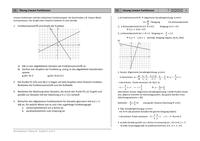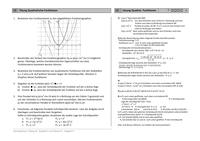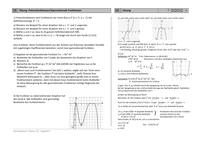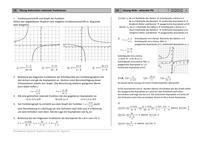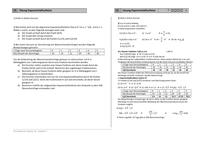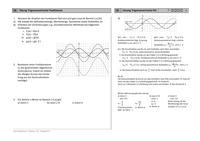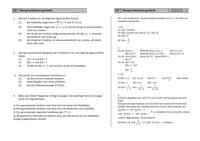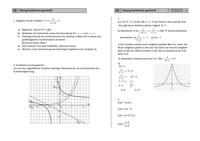Funktionen: Unterschied zwischen den Versionen
Aus RMG-Wiki
(→Teste dein Wissen) |
|||
| (24 dazwischenliegende Versionen von 2 Benutzern werden nicht angezeigt) | |||
| Zeile 1: | Zeile 1: | ||
| − | === Teste dein Wissen | + | __NOTOC__ |
| − | 1) Ordne | + | <div style="background: #ABAABF;"> |
| − | <div class=" | + | |
| − | {| | + | |
| − | | | + | |
| − | + | ||
| − | + | <center><table border=0 width="800px" cellpadding=5 cellspacing=5> | |
| − | + | <tr><td width="800px" valign="middle"> | |
| − | + | ||
| − | + | ||
| − | + | ||
| − | + | == Teste dein Wissen== | |
| − | + | Um die folgenden Aufgaben lösen zu können, solltest du mit diesen Funktionen umgehen können: <br/> | |
| − | + | - Lineare Funktionen <br/> | |
| − | | | + | - Quadratische Funktionen <br/> |
| + | - Potenzfunktionen/Ganzrationale Funktionen (höheren Grades) <br/> | ||
| + | - Gebrochen-Rationale Funktionen <br/> | ||
| + | - Exponentialfunktionen <br/> | ||
| + | - Trigonometrische Funktionen <br/> | ||
| + | In den Übungen werden die verschiedenen Funktionstypen gemischt.<br/> | ||
| + | <br/> | ||
| + | |||
| + | '''1) Ordne jedem der Funktionsgraphen die Funktionsgleichung (oben) und den Funktionstyp (unten) passend zu. <br/>''' | ||
| + | <div class="lueckentext-quiz"> | ||
| + | {| class="wikitable center" | ||
| + | |- | ||
| + | | [[Datei:E1010.png|100px]] || [[Datei:D1010.png| 100px]] || [[Datei:A.png| 100px]] || [[Datei:F1010.png| 100px]] || [[Datei:C1010.png| 100px]] || [[Datei:H1010.png| 100px]] || [[Datei:B1010.png| 100px]] | ||
|- | |- | ||
| − | | <math> | + | |<strong><math>y=0,5x+1</math></strong> || <strong><math>y=0,5x^2+1</math></strong>|| <strong><math>y=x^3+1</math></strong> || <strong><math>y=\frac {1}{x^2-4}-2</math></strong> || <strong><math>y=-0,2x^4+0,5x^2</math></strong>|| <strong><math>y=2^x-0,5</math></strong> || <strong><math>y=0,5sinx+1</math></strong> |
|- | |- | ||
| − | | < | + | | <strong>Lineare Funktion</strong> || <strong>Quadratische Funktion</strong> || <strong>Ganzrationale Funktion</strong> || <strong> Gebrochen-rationale Funktion</strong> ||<strong> Ganzrationale Funktion</strong> ||<strong> Exponentialfunktion</strong> || <strong> Trigonometrische Funktion</strong> |
|} | |} | ||
| Zeile 23: | Zeile 35: | ||
| − | |||
| − | Entscheide, ob P(3/-6) auf dem Graphen der Funktion <math>f(x)=3x^2-4x-9</math> liegt. | + | <div class="multiplechoice-quiz"> |
| + | '''2) Entscheide, ob P(3/-6) auf dem Graphen der Funktion <math>f(x)=3x^2-4x-9</math> liegt. | ||
| + | ''' | ||
(Nein, P liegt unterhalb von G<sub>f</sub>) | (Nein, P liegt unterhalb von G<sub>f</sub>) | ||
(!Nein, P liegt oberhalb von G<sub>f</sub>) | (!Nein, P liegt oberhalb von G<sub>f</sub>) | ||
| Zeile 32: | Zeile 45: | ||
</div> | </div> | ||
| − | 3) Gib den Funktionsterm einer Geraden durch P(1/5) an, die parallel zur Geraden g: y=2x+4 verläuft. | + | ''' 3) Gib den Funktionsterm einer Geraden durch P(1/5) an, die parallel zur Geraden g: y=2x+4 verläuft. |
| − | <quiz> | + | ''' |
| − | { | + | <quiz display="simple"> |
| + | { | ||
| type="{}" } | | type="{}" } | ||
| − | p(x)={ 2x+3 } | + | p(x)= { 2x+3 } |
</quiz> | </quiz> | ||
| − | <div class="multiplechoice-quiz"> | + | <div class="multiplechoice-quiz" shuffle="none"> |
| − | 4) Kreuze für <math>f(x)= -2x^2+2</math> die richtige Aussage an: | + | '''4) Kreuze für <math>f(x)= -2x^2+2</math> die richtige Aussage an: ''' |
| + | <br/> | ||
Versuche die Aufgabe durch Überlegen zu lösen; es sind keine Berechnungen nötig | Versuche die Aufgabe durch Überlegen zu lösen; es sind keine Berechnungen nötig | ||
| − | (G<sub>f</sub> ist weiter als die Normalparabel) | + | (!G<sub>f</sub> ist weiter als die Normalparabel) <br/> |
| − | ( | + | (G<sub>f</sub> ist enger als die Normalparabel) |
(!G<sub>f</sub> hat die Form einer Normalparabel) | (!G<sub>f</sub> hat die Form einer Normalparabel) | ||
(G<sub>f</sub> hat zwei Schnittpunkte mit der x-Achse) | (G<sub>f</sub> hat zwei Schnittpunkte mit der x-Achse) | ||
| Zeile 50: | Zeile 65: | ||
(!G<sub>f</sub> hat keinen Schnittpunkt mit der x-Achse) | (!G<sub>f</sub> hat keinen Schnittpunkt mit der x-Achse) | ||
(!G<sub>f</sub> ist punktsymmetrisch bzgl des Ursprungs) | (!G<sub>f</sub> ist punktsymmetrisch bzgl des Ursprungs) | ||
| − | (G<sub>f</sub> ist achsensymmetrisch bzgl | + | (G<sub>f</sub> ist achsensymmetrisch bzgl der y-Achse) |
(!G<sub>f</sub> ist nicht symmetrisch) | (!G<sub>f</sub> ist nicht symmetrisch) | ||
(!Der Grenzwert für x gegen unendlich ist 0) | (!Der Grenzwert für x gegen unendlich ist 0) | ||
| − | (Der Grenzwert für x gegen unendlich ist unendlich) | + | (!Der Grenzwert für x gegen unendlich ist unendlich) |
| − | ( | + | (Der Grenzwert für x gegen minus unendlich ist minus unendlich) |
| + | </div> | ||
| − | |||
| − | |||
| − | + | '''5) Gib das Verhalten der folgenden Funktionen für <math> x \rightarrow \infty \, und \, x \rightarrow \infty </math> an.''' <br/> | |
| − | + | Gib den Grenzwert als Dezimalzahl an oder verwende "u" für <math> \infty </math> und "-u" für <math> - \infty </math>. <br/> | |
| − | + | Schreibe das Wort "Null" für "0" <br/> | |
| − | + | <quiz display="simple"> | |
| − | + | { | |
| − | + | ||
| − | Gib den Grenzwert als Dezimalzahl an oder verwende "u" für <math> \infty </math> und "-u" für <math> -\infty </math>. | + | |
| type="{}" } | | type="{}" } | ||
| − | <math>f(x)=\frac 1 x + \frac 3 | + | <math>f(x)=\frac 1 x + \frac 6 3 \qquad \lim_{x \to \infty}f(x)= </math> { 2 } |
| − | <math>f(x)=\frac 1 x + \frac 3 5 \qquad \lim_{x \to -\infty}f(x)= </math> { | + | <math>f(x)=\frac 1 x + \frac 6 3 \qquad \lim_{x \to -\infty}f(x)= </math> { 2 } |
| + | <br/> | ||
| + | <math>f(x)=\frac {6x^5+4x^2} {x^2+3x^4} \qquad \lim_{x \to \infty}f(x)= </math> { u } | ||
| + | <math>f(x)=\frac {6x^5+4x^2} {x^2+3x^4} \qquad \lim_{x \to -\infty}f(x)= </math> { -u } | ||
| + | <br/> | ||
| + | <math>f(x)=\frac {3x^2-x+6x^5} {3x^5+x+1} \qquad \lim_{x \to \infty}f(x)= </math> { 2 } | ||
| + | <math>f(x)=\frac {3x^2-x+6x^5} {3x^5+x+1} \qquad \lim_{x \to -\infty}f(x)= </math> { 2 } | ||
| + | <br/> | ||
| + | <math>f(x)=\frac 3 5 x^3 + \frac 3 5 x^2 \qquad \lim_{x \to \infty}f(x)= </math> { u } | ||
| + | <math>f(x)=\frac 3 5 x^3 + \frac 3 5 x^2 \qquad \lim_{x \to -\infty}f(x)= </math> { -u } | ||
| + | <br/> | ||
| + | <math>f(x)=5 \cdot (\frac 1 3)^x \qquad \lim_{x \to \infty}f(x)= </math> { Null } | ||
| + | <math>f(x)=5 \cdot (\frac 1 3)^x \qquad \lim_{x \to -\infty}f(x)= </math> { u } | ||
| − | + | </quiz> | |
| − | + | ||
| − | + | == Knicktests == | |
| − | + | <br /> | |
| + | {| class="wikitable center" | ||
| + | |- | ||
| + | | [[Datei:3 AB1 LineareFunktionen.pdf|thumb|Knicktest - Lineare Funktionen|200px]] || [[Datei:3 AB2 QuadratischeFunktionen.pdf|thumb|Knicktest - Quadratische Funktionen|200px]] | ||
| + | || [[Datei:3 AB3 Potenz GanzrationaleFunktionen.pdf|thumb|Knicktest - Potenzfunktionen/Ganzrationale Funktionen|200px]] | ||
| + | |- | ||
| + | | [[Datei:3 AB4 GebrochenRationaleFunktionen.pdf|thumb|Knicktest - Gebrochenrationale Funktionen|200px]] || [[Datei:3 AB5 Exponentialfunktion.pdf|thumb|Knicktest - Exponentialfunktionen|200px]] || [[Datei:3 AB6 TrigonometrischeFunktionenWiki.pdf|thumb|Knicktest - Trigonometrische Funktionen|200px]] | ||
| + | |- | ||
| + | | [[Datei:3 AB7 Gemischt.pdf|thumb|Knicktest - Funktionen gemischt 1|200px]] || [[Datei:3 AB8 Gemischt.pdf|thumb|Knicktest - Funktionen gemischt 2|200px]] | ||
| + | |} | ||
| − | < | + | [[Mathematik_Grundwissen_10|Zurück zur Übersicht]] |
| − | < | + | </td></tr></table></center> |
| − | |||
| − | |||
| − | |||
| − | |||
| − | </ | + | </div> |
| − | + | ||
| − | + | ||
Aktuelle Version vom 12. September 2014, 15:49 Uhr














 liegt.
(Nein, P liegt unterhalb von Gf)
(!Nein, P liegt oberhalb von Gf)
(!Ja, P liegt auf Gf)
liegt.
(Nein, P liegt unterhalb von Gf)
(!Nein, P liegt oberhalb von Gf)
(!Ja, P liegt auf Gf)
 die richtige Aussage an:
die richtige Aussage an:
 an.
an.  und "-u" für
und "-u" für  .
. 